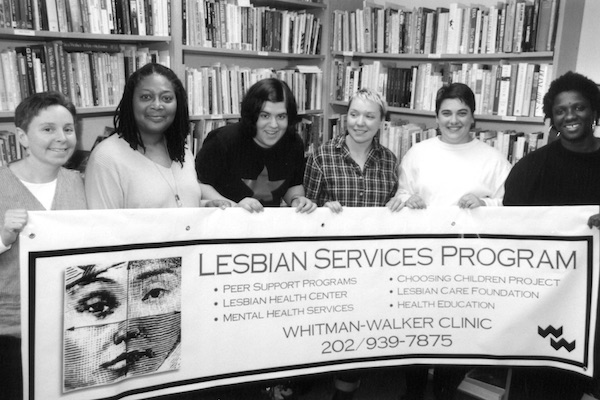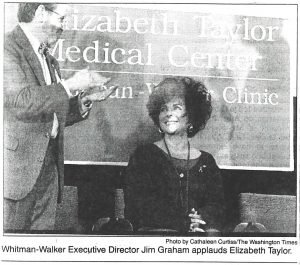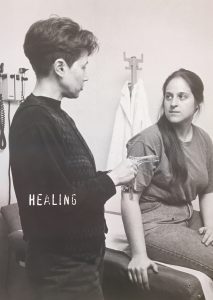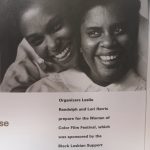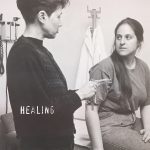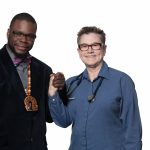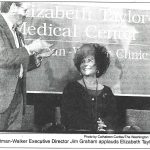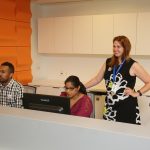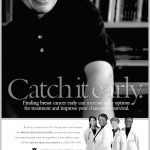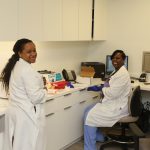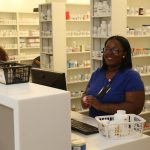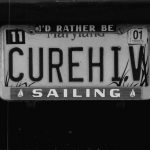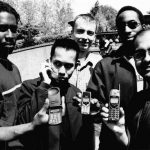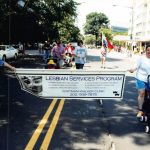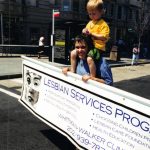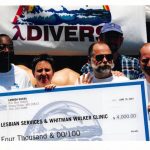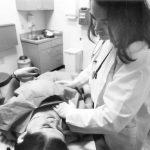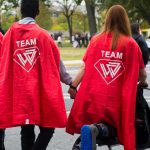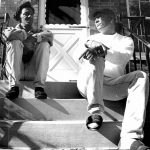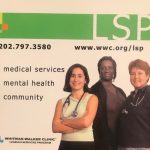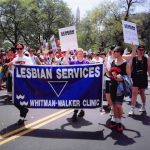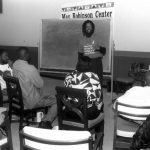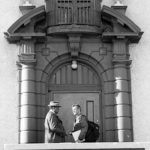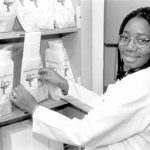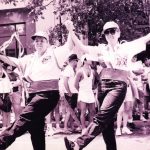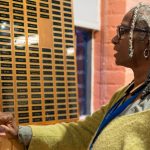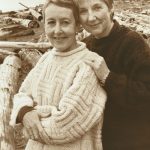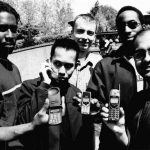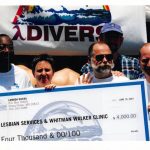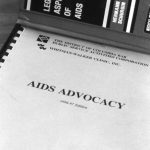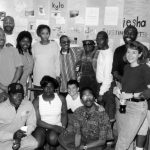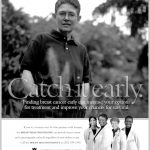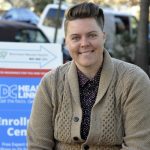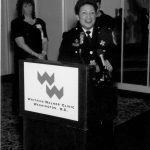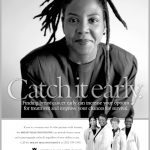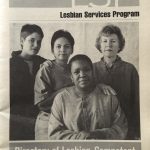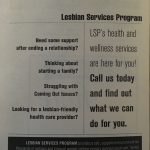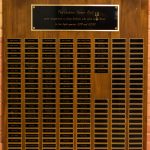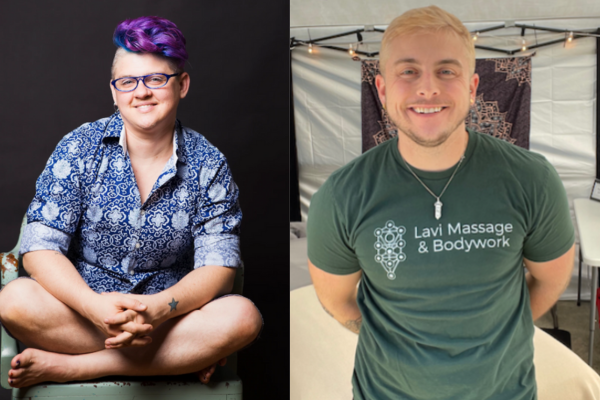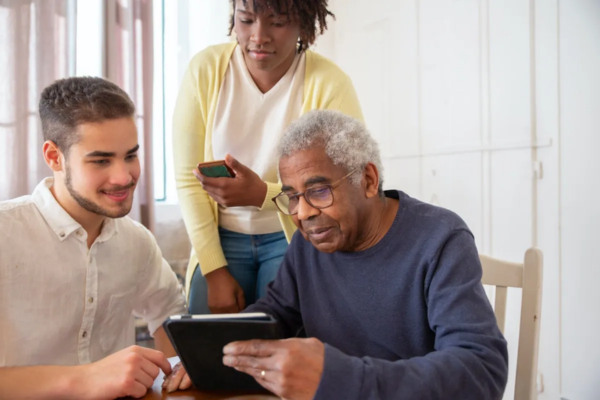
Women You Should Meet (W.Y.S.M.): Katie Nicol
January 16, 2018
Your Fantasy Lover is Stopping You From Finding the Real Life Woman of Your Dreams
January 18, 2018Feature: Whitman-Walker Health Turns 40
Celebrating women’s health and decades of LGBTQ excellence
History
For 40 years, Whitman-Walker Health has fought to provide patient-focused health care for the LGBTQ community. In 1978, the Whitman-Walker Clinic opened one year after the Gay Men’s VD Clinic separated from the Washington Free Clinic. Clinic leaders chose to honor Walt Whitman and Dr. Mary Edwards Walker in naming the new organization Whitman, a well-known, presumably gay poet, cared for Union soldiers during the Civil War. Walker was a dapper physician ahead of her time. After being denied an officer’s commission, she became an assistant surgeon for the Union Army, helping officers both in hospitals and on the front lines.
Throughout the 80s, Whitman-Walker was on the forefront of the HIV and AIDS battle in the District—and the U.S. In 1984, Whitman-Walker added an AIDS Evaluation Unit, which was the first gay community-based medical unit in the country devoted to the evaluation and diagnosis of AIDS symptoms. On June 28, 1987 Whitman-Walker moved to a larger space on the corner of 14th Street and S Street NW. The Elizabeth Taylor Medical Center was constructed and dedicated in 1993, and in 2000, nearly all medical services were moved to this building.
In 2005, the clinic added medical and support services for the transgender community. A year later, Don Blanchon was named the organization’s Executive Director and Chief Executive Officer. Whitman-Walker staff have commended Blanchon’s leadership and knowledge from the beginning of his time there and admired his vision for leading the organization to the successful place it is today.
Mission
“Our mission is to be the highest quality, culturally competent community health center serving greater Washington’s diverse urban community, including individuals who face barriers to accessing care, and with a special expertise in LGBT and HIV care.”
Whitman-Walker envisions a society where all individuals are seen for who they are, treated with dignity and respect, and afforded equal opportunity to health and wellbeing. Through care, advocacy, research, and education, they empower people to live healthy, love openly, and achieve equality and inclusion.
They educate and negotiate with insurance companies so that patients receive coverage for their medical needs. They also empower patients by breaking down their coverage and, by getting patients in the door to fulfill one need, they address other challenges—whether they are medical or legal—to provide a higher level of care.
“Every person on the team has a role and the patient is in the center of that,” says Erin Loubier, the Senior Director for Health and Legal Integration and Payment Innovation. “[We’re] not like the medical provider directing traffic. We think, ‘Here is the patient, everything’s around the patient and we need to navigate that and not the other way around.’”
Lesbian Services and Queer Women’s Health
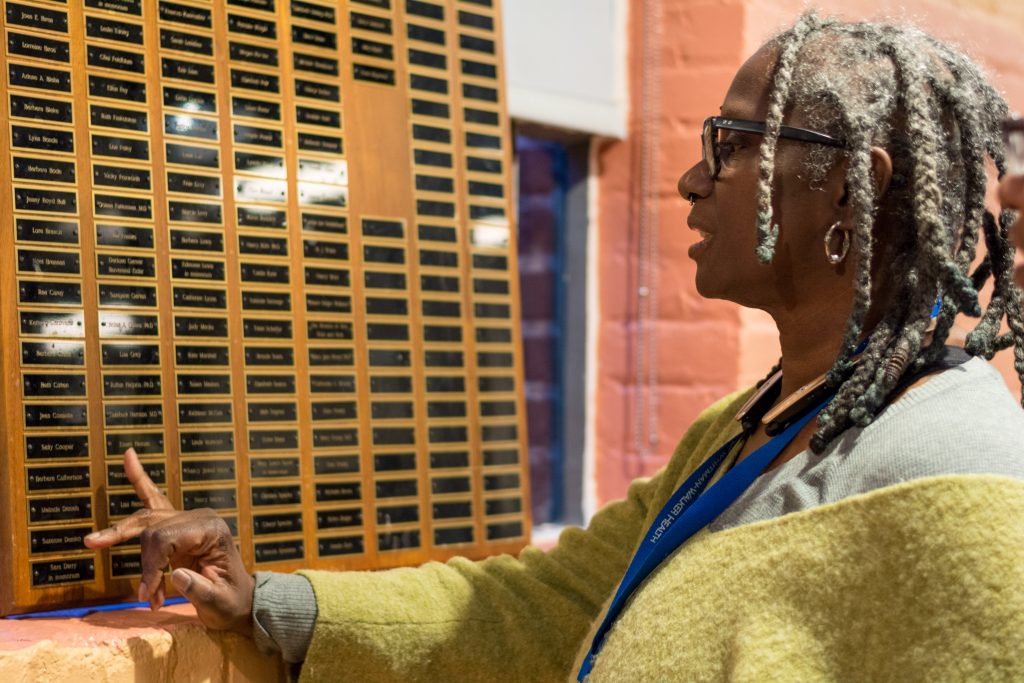
Community Commitment & Training Coordinator D. Magrini looks at the Lesbian Honor Roll plaque (Photo by Robin Kenyetta)
There were very few places lesbians and other queer-identified women could get comprehensive and inclusive care in the District before Whitman-Walker’s lesbian health center opened in the late ‘70s. It later came to be known as the Lesbian Resource and Counseling Center (LRCC), which was staffed by volunteers and housed in a Whitman-Walker building. In 1990, the Lesbian Service Program (LSP) was created. At LSP, the services provided reflected the center’s clientele. Here, gynecological care was available for all who needed it, couples could get therapy, and women of color could find support in the Black Lesbian Support Group.
“Having LSP stand out as an identified program sent a message to the lesbian, bi, and queer women’s community that there was a place for them at Whitman-Walker,” says Ellen Kahn, the last Executive Director of LSP. “There were services and resources for them that are separate from the HIV-related services. Not to say we didn’t address HIV, but it was not a health priority for lesbian/bi women. We created a space for women to gather, to seek support, and to get health care they may have otherwise never received.”
D. Magrini, Community Commitment and Training Coordinator, and Barbara R. Lewis, a physicians assistant, were two of the many volunteers and medical professionals helping their community stay healthy. In the early 70s, gynecological appointments were a little different here.
“When women came in for GYN services they would come in a group. We would call them all in as a group. Then one of us would take off our pants and show them our cervix,” Lewis says. They would then give the group mirrors and speculums and teach them how to find their cervixes. “So we could help direct the exam,” Magrini adds. Today, most GYN appointments do not involve such a hands-on approach but it is helpful to know what is normal for your body.
“Normal” looks different depending on your experience and your needs, and some experiences are hard to describe. Magrini is an Army veteran and is extra attentive to fellow lesbians who have left the service. Their needs can range from physical pain from old injuries to the emotional and psychological strain of being in warfare and being a woman in a testosterone driven, predominantly male environment.
“I think things that a lot of women need, who have been in the service, are not things we talk about a lot,” says Magrini, “What do you do with your female heart, your female brain in that situation? How do you protect your female body in that situation? So what folks might need could be all of those and none of those.”
LSP closed its doors in 2005, but services for queer women continued through an organization called the Mautner Project. The organization is named after Mary Helen Mautner, who passed away from breast cancer in 1988. With a community of support that included her partner, Susan Hester, as well as family and friends, Mautner urged those around her to recreate this community for the women who did not have one.
In 2013, the Mautner Project merged with Whitman-Walker Health. “We recognized that the struggle for lesbian health, while a women’s issue, is also closely tied to the broader struggle for LGBTQ rights,” says former Executive Director of Mautner Project Leslie Calman. “In a range of advocacy efforts, we joined with other LGBTQ organizations—local and national—to press for full equality, knowing that this is the key to better health.”
Through this merger, more programs for queer women and trans women and men have been created and continue to thrive.
Women on the Forefront
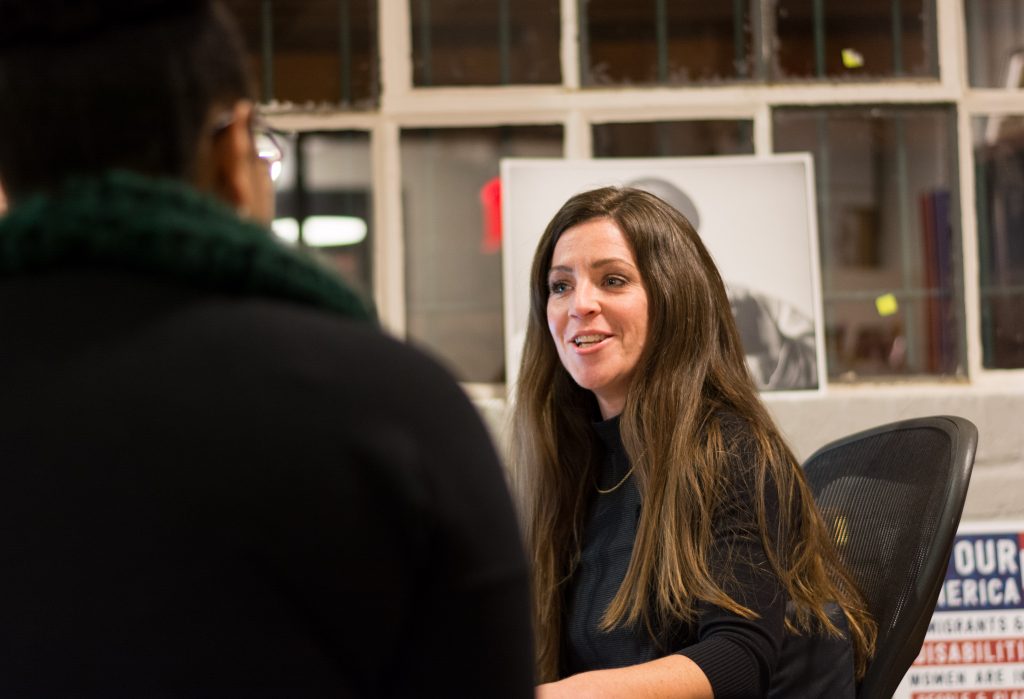
Legal Services Operations Manager Lee Hicks acts as the first-line of contact for many Whitman-Walker Health clients (Photo by Robin Kenyetta)
At the height of the HIV/AIDS epidemic, lesbians all over the U.S. jumped into action to aid their gay brothers, and women at Whitman-Walker were involved in conducting early drug trials. Lewis was among them. “When I went to GW, we had one drug. I was part of putting people on AZT for the first time, at Whitman-Walker. When I went to GW I was given the second drug in investigational, DDI,” say Lewis. Unfortunately 20 out of the 60 patients in the drug trial did not survive. This is just one of many stories queer women could tell of their service during this difficult time. To commemorate the hard work of these women, often unsung heroines, the Lesbian Honor Roll plaque was created in their honor.
This kind of support and leadership was not only shown during the HIV/AIDS epidemic. When Whitman-Walker was struggling financially, layoffs were unavoidable. Barbara Chin, Dr. Patricia Hawkins, Arlene Baha, Mary Bar, women who built many programs (that still exist today) were unable to remain in their posts. Operations manager of the Legal Services Department Lee Hicks, was embraced and mentored by these women when she started at Whitman-Walker in 2004. She remembers an emotional and inspirational moment they shared before these trailblazers left the organization. “I looked at them knowing they no longer had a job and they looked at me, like [I’m] part of the next generation. [I thought to myself], ‘you all mean so much to me. You have made this organization what it is and we’re now saying goodbye to you. And you now, with your strength, are having to look at me and say’, ‘Fly Lee fly’.”
Hicks and many others who have joined Whitman-Walker’s team have done just that by fulfilling needs that have long been overlooked.
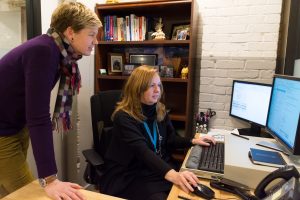
Erin Loubier (left) and Amy Nelson lead the charge in patient legal services and payment innovation at WWH
Loubier has been a part of the Whitman-Walker family for over 20 years. She has helped to create services and works with a team to find innovative ways patients can pay for the help they need. She and her team also work to educate both insurance companies and patients about protected rights and privileges as well as help with immigration and residency issues. “We want to create a place where we’re both addressing those things with people and making them feel really comfortable getting through whatever issue there is,” Loubier says. “We also recognize that plays a pretty big role in how they are able to take advantage of health care.”
Amy Nelson, the Director of Legal Services likes the easy way Whitman-Walker grows and the approaches used to maximize client comfort. “The work we do at Whitman-Walker is so personal. It’s based on people’s very personal health needs and their personal legal needs, so it’s important that warmth and connection be made with both our staff and our volunteers and client base,” she says. “I think the women leaders prioritize that. They recognize that it’s a key part of our mission. I leave work every day a smarter, kinder, more well-rounded person. To learn from my clients about their struggles, their humility, their passion, their triumphs—it’s powerful stuff.”
People like Shane’a Thomas, a psychotherapist at Whitman-Walker, makes sure that LGBTQ youth are also a part of the organization’s personal and compassionate care. Thomas understands the traumas and challenges young people in the community may face. Thomas did not have this kind of support when she was younger and wants to ensure that those who need it can find it.
“I don’t ever want a kid, a youth, a young adult to feel like there isn’t somebody out there for them. So if you don’t see that person, become that person. I am trying to become that person. There are challenges, rewards, and benefits that come with that and it’s hard work,” Thomas says.
Although it is difficult, the women of Whitman-Walker Health rise to the challenge to ensure those under their care receive their best. “I think [women] are natural leaders. I do. Maybe as a new mom, I’m beginning to realize that more and more. It’s kind of innate. Sometimes we’re a little more on the empathetic side,” says Hicks. “And I think the synergy of that natural leadership and empathy can get you far in life. It’s a kinder way to live and it’s at the heart of this place.”
Moving Forward
As Whitman-Walker has grown over the past 40 years, they are committed to evolving to meet the needs of all of their clientele.
They have proven this with new programs like the name and gender clinic and the groups for young queer women surviving trauma. Their next initiative rolling out in 2018 will focus on PrEP education and making sure D.C. area residents taking (or looking to take) PrEP have an efficient and hospitable experience within the health center.
“This year is a very exciting time for Whitman-Walker Health as it is our 40th anniversary,” says Abby Fenton, Chief External Affairs Officer. “Our tagline is ‘Fearless at 40: Fighting Stigma. Saving Lives’ and we’re looking forward to celebrating all year long with the community.”
Take a walk down memory lane (past and present) in our photo gallery.


